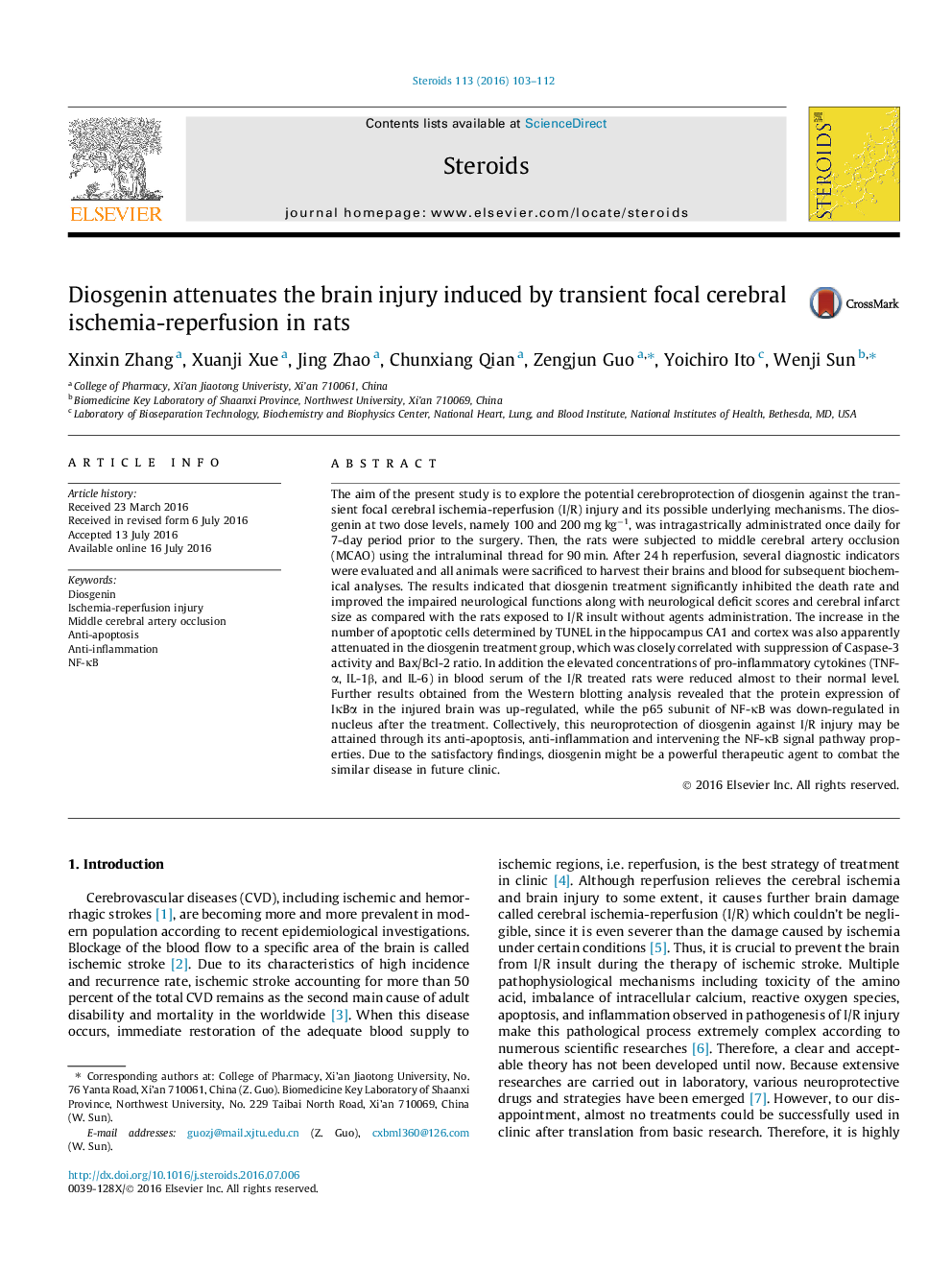| کد مقاله | کد نشریه | سال انتشار | مقاله انگلیسی | نسخه تمام متن |
|---|---|---|---|---|
| 2027678 | 1542695 | 2016 | 10 صفحه PDF | دانلود رایگان |
• Diosgenin alleviated ischemia-reperfusion (I/R) cerebral injury on animal mode.
• Diosgenin suppressed the pro-inflammatory cytokines in animal subjected to MCAO.
• Diosgenin ameliorated the imbalance between the pro- and anti-apoptotic factors.
• Its potential mechanisms were related with anti-inflammation and anti-apoptosis.
• The NF-κB pathways was inactivated after preliminary administration with diosgenin.
The aim of the present study is to explore the potential cerebroprotection of diosgenin against the transient focal cerebral ischemia-reperfusion (I/R) injury and its possible underlying mechanisms. The diosgenin at two dose levels, namely 100 and 200 mg kg−1, was intragastrically administrated once daily for 7-day period prior to the surgery. Then, the rats were subjected to middle cerebral artery occlusion (MCAO) using the intraluminal thread for 90 min. After 24 h reperfusion, several diagnostic indicators were evaluated and all animals were sacrificed to harvest their brains and blood for subsequent biochemical analyses. The results indicated that diosgenin treatment significantly inhibited the death rate and improved the impaired neurological functions along with neurological deficit scores and cerebral infarct size as compared with the rats exposed to I/R insult without agents administration. The increase in the number of apoptotic cells determined by TUNEL in the hippocampus CA1 and cortex was also apparently attenuated in the diosgenin treatment group, which was closely correlated with suppression of Caspase-3 activity and Bax/Bcl-2 ratio. In addition the elevated concentrations of pro-inflammatory cytokines (TNF-α, IL-1β, and IL-6) in blood serum of the I/R treated rats were reduced almost to their normal level. Further results obtained from the Western blotting analysis revealed that the protein expression of IκBα in the injured brain was up-regulated, while the p65 subunit of NF-κB was down-regulated in nucleus after the treatment. Collectively, this neuroprotection of diosgenin against I/R injury may be attained through its anti-apoptosis, anti-inflammation and intervening the NF-κB signal pathway properties. Due to the satisfactory findings, diosgenin might be a powerful therapeutic agent to combat the similar disease in future clinic.
Figure optionsDownload as PowerPoint slide
Journal: Steroids - Volume 113, September 2016, Pages 103–112
